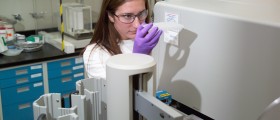
The prostate gland is a part of a reproductive system in men and it is positioned below the bladder. This gland creates a protein named prostate specific androgen, PSA. Blood serum also contains small amounts of this protein. When the levels of this protein are considerably elevated in the blood, it usually indicates that serious health conditions are present, such as benign prostatic hyperplasia or prostate cancer. Apart from PSA test, a digital rectal exam and biopsy are necessary in order to diagnose prostate cancer accurately.
Causes of high PSA levels
The levels of prostate specific antigen can be increased due to several reasons.
One of the reasons is the prostate cancer, but the fact is that it can also be elevated due to some less serious conditions, such as swollen or enlarged prostate. Benign prostatic hyperplasia is non-cancerous condition, which is also responsible for the occurrence of high PSA levels. Prostatitis is the medical term for the prostate gland inflammation and this prostate disorder can also lead to the increased levels of the prostate specific antigen.Other conditions responsible for the incidence of high PSA levels are bicycle riding and recent ejaculation, as well as consummation of certain medications, although the levels of this protein are not very high in these cases.
The meanings of the different levels of PSA
The values less than 4 ng/ml of blood are considered to be normal. When the test shows the values between 4 and 10 ng/ml, there is 25% chance of prostatic cancer and these values usually indicate the presence of prostatitis or benign prostatic hyperplasia.
The level of this protein tends to elevate with aging, which is why there is age-adjusted PSA test according to which the men under 50 years of age can have less then 2.4 ng/ml, while the men under the age of 60 can have 3 ng/ml of this protein in the blood sample. Furthermore, the men between 60 and 69 years of age can have about 4 ng/ml, while the men above 70 years of age can have 5 ng/ml of this protein.
When one undergoes this test, two other factors are also very important: PSA velocity and PSA density. To conclude, PSA test is not perfect and it can usually show false results. When the result is positive, the patients are then sent to undergo other test to confirm the diagnosis. On the other side, sometimes it can be negative even though the patient has the prostate cancer.

















Your thoughts on this
Loading...